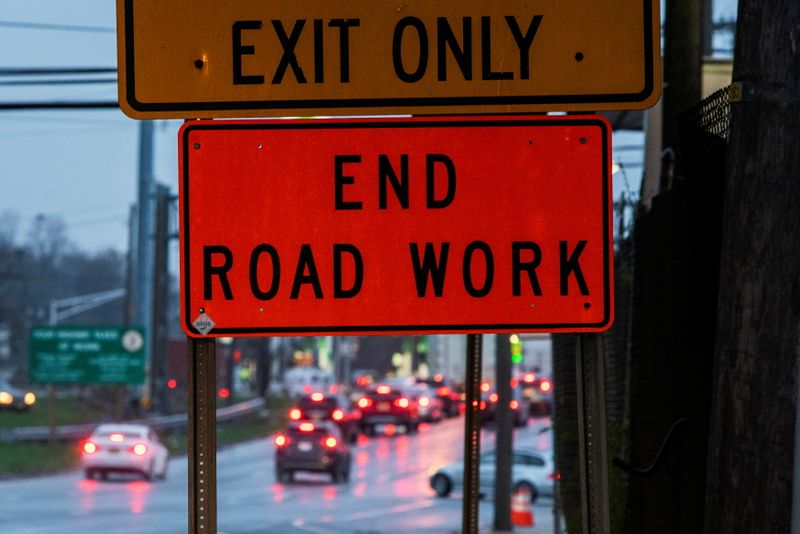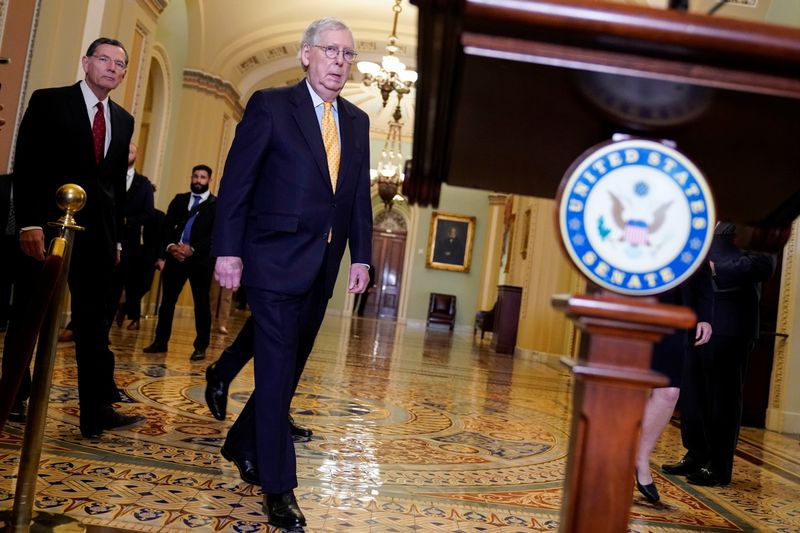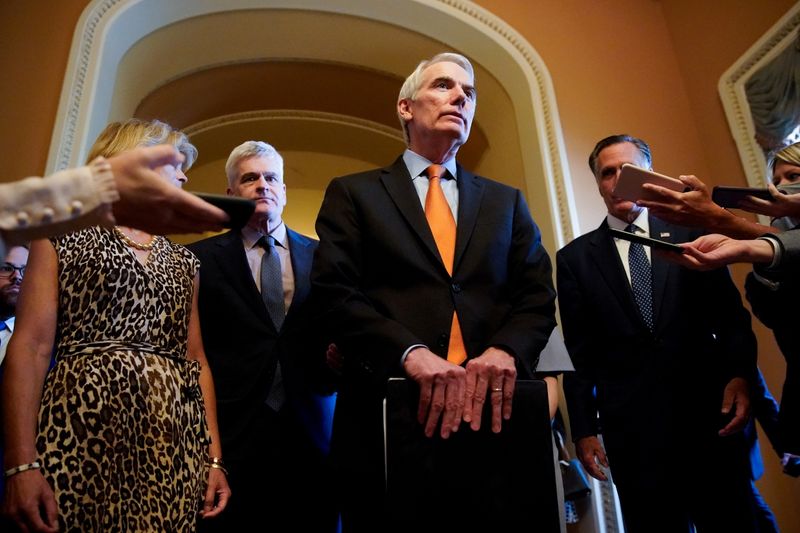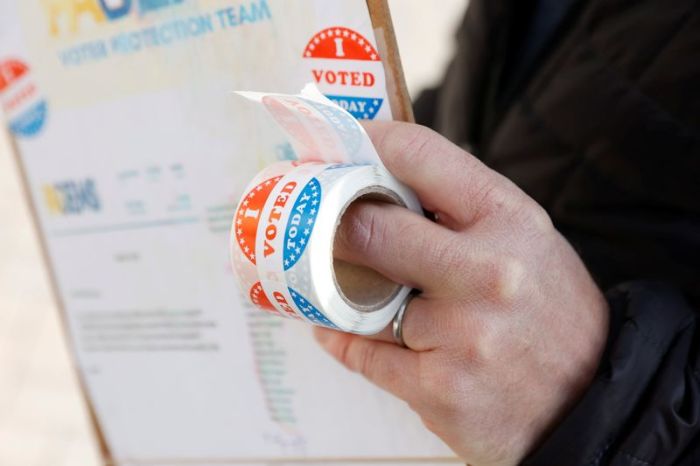WASHINGTON (Reuters) -The U.S. Senate voted by a wide margin on Friday to take up a $1 trillion infrastructure bill, as Republicans and Democrats alike advanced President Joe Biden’s top priority of renovating roads and bridges.
The 66-28 vote was hailed by lawmakers of both parties as a sign that Washington was capable of working through sharp partisan differences on a package that would boost the economy and restore vital but aging transportation links that Americans depend upon.
The vote was suspended for more than 45 minutes as lawmakers questioned how it would affect broadband internet access, in a sign of the complexity of both the bill and the politics surrounding it. Several lawmakers said it was difficult to determine details of the bill because aides were still drafting legislative text.
Senators were scheduled to work through the weekend on the sweeping plan, which would dramatically increase the nation’s spending on roads, bridges, transit and airports. Supporters predicted it would ultimately pass the Senate and House, eventually reaching Biden’s desk for him to sign it into law.
“Basically we’re on the right track,” said Democratic Senator Joe Manchin, who was part of a bipartisan group that crafted the bill with the White House over months of negotiations.
The package includes about $550 billion in new spending, on top of $450 billion that was previously approved. It also includes money for eliminating lead water pipes and building electric vehicle charging stations.
The bill does not include funding for most climate change and social initiatives that Democrats aim to pass in a separate $3.5 trillion measure without Republican support.
Both Senate Majority Leader Chuck Schumer, a Democrat, and Minority Leader Mitch McConnell, a Republican, have been upbeat about prospects for the bill.
McConnell was one of 16 Republicans who voted with all 50 Democrats to advance the bill.
Democrats hold razor-thin margins in both the Senate and the House of Representatives, meaning the party must stick together to achieve its legislative goals. Progressive members of the House Democratic caucus have already suggested the $1 trillion package is inadequate.
Biden on Thursday said the separate $3.5 trillion bill should include a pathway to citizenship for the “Dreamer” immigrants who were brought to the United States as children. It was unclear whether that would be possible under the Senate’s complex rules.
Schumer said he plans to pass both the bipartisan infrastructure bill and the Democratic climate and social spending bill before senators take their summer break, which was supposed to start in the second week of August.
(Reporting by David Morgan and Richard Cowan; Writing by Andy Sullivan; Editing by Scott Malone, Peter Graff, Howard Goller, Dan Grebler and Cynthia Osterman)



























